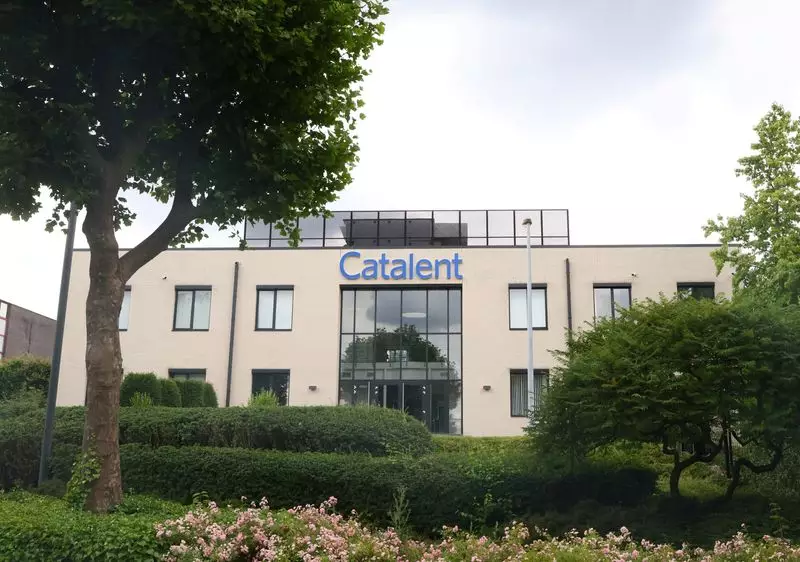The merger between Novo Holdings and Catalent, a significant player in pharmaceutical manufacturing, has ignited a fierce debate in the realm of antitrust regulations and market competition. The deal, valued at $16.5 billion, is positioned as a move to enhance the production capabilities of Novo Nordisk’s leading weight-loss drug, Wegovy. However, various consumer advocacy groups and labor unions are raising alarms, contending that this acquisition may stifle competition in critical sectors, particularly in weight-loss drugs and innovative gene therapies.
Consumer groups, including the U.S. Public Interest Research Group and the Service Employees International Union, have presented their case to the Federal Trade Commission (FTC), arguing that the merger could significantly reduce competitive dynamics within the pharmaceutical industry. By gaining control over Catalent’s manufacturing capabilities, Novo Holdings could potentially limit the market entry of existing and future competitors such as Amgen, Pfizer, and AstraZeneca, each of whom are developing their own formulations of GLP-1 drugs. These concerns are underscored by the assertion that restricted access to essential manufacturing resources could hinder these competitors’ ability to successfully bring their products to market.
The letter submitted to the FTC highlights a critical issue: the ability of emerging companies, such as Viking Therapeutics and Structure Therapeutics, to secure the necessary manufacturing expertise and capacity to compete effectively against Novo Nordisk. If the acquisition is approved, it may contribute to a monopolistic landscape where Novo Holdings can dictate market terms, potentially leading to higher prices and limited options for consumers.
In the face of these competitive concerns, Novo Holdings has expressed confidence in the merits of the transaction. They argue that the acquisition of Catalent will not only enhance supply chains for Wegovy but also bring overall benefits to customers and patients. Catalent has reinforced this stance, asserting that the acquisition will bolster their capacity to deliver improvements in treatment outcomes and better cater to patient needs.
Despite these assurances, skepticism remains prevalent among various stakeholders. Critics worry that without sufficient regulatory scrutiny, the merger could inadvertently hinder innovation in the pharmaceutical sector, particularly for weight-loss drugs and gene therapies. The concerns articulated by the consumer groups underscore a broader narrative: the transaction not only concerns pre-existing drugs but also poses implications for the future development of new therapies.
In addition to weight-loss drugs, the prospective impact on gene therapy development has emerged as a pivotal point of contention. The groups arguing against the acquisition have raised alarms about Novo Holdings’ potential to affect Catalent’s capacity to manufacture crucial gene therapies, such as those being developed in partnership with Sarepta Therapeutics and Novartis. This is especially pertinent given the rising prominence of gene therapies and their transformative potential in treating a range of genetic disorders.
The crux of the argument hinges on whether the merger would enable Novo Holdings to monopolize not just the current manufacturing landscape but also threaten future therapeutic developments. The intersection of antitrust issues with the burgeoning field of gene therapy raises significant questions about how the FTC will navigate its decision-making process.
The ongoing scrutiny from consumer advocacy groups and labor unions reveals a growing concern about regulatory frameworks in high-tech industries. As legislators and policymakers continue to grapple with the implications of corporate consolidations, this acquisition will undoubtedly serve as a litmus test for antitrust enforcement in the healthcare sector.
Senator Elizabeth Warren’s call for closer examination of the deal reflects a broader bipartisan concern regarding the balance between fostering innovation and preventing monopolistic behaviors. The outcome of this narrative will likely set a precedent for future mergers within the pharmaceutical and biotechnology industries, determining how much control can be centralized in a few large corporations.
As Novo Holdings and Catalent move toward finalizing their acquisition, the tension surrounding the deal underscores a vital crossroads for competition and innovation in healthcare. While proponents of the merger tout potential efficiencies and enhanced product availability, dissenters warn of the suffocating environment it may create for competition and new drug development. The role of the FTC will be crucial in balancing these competing narratives, and the decision they reach may define the future landscape of pharmaceutical innovation for years to come. As the implications ripple through the industry, the ultimate challenge will be ensuring that patient access and choice remain at the forefront of pharmaceutical developments.

